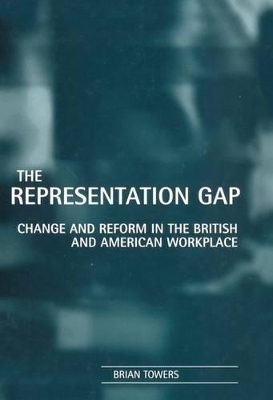For up to twenty years after the Second World War both in Britain and the US boasted `mature' industrial relations systems supported by their governments and, allowing for some differences in degree, by most employers. Since the early 1980s, these systems have been critically weakened. This comparative industrial relations text explains this development primarily through the withdrawal of public policy support and, mainly in Britain's case, its replacement by
government hostility.
An important consequence of this is the erosion of the effective defence and representation of employee interests as the managerial prerogative has been allowed, even encouraged, to extend its authority in the workplace. The `representation gap' has grown so that six out of seven US employees, and two out of three British, are not represented at work, at the same time as there has been increasing discussion of `team' working etc. This could be a serious negative development for economic
performance.
A growing body of research is indicating that employers who bargain with trade unions, or enter into partnerships with them, are likely to be more productive than their non-union competitors. More importantly, the size of the representation gap presents a clear denial of the democratic rights of citizens, in their role as employees, with potentially serious implications for social stability both within and beyond the workplace.
- ISBN10 0198289464
- ISBN13 9780198289463
- Publish Date 6 November 1997
- Publish Status Active
- Out of Print 20 April 2021
- Publish Country GB
- Imprint Oxford University Press
- Format Hardcover
- Pages 312
- Language English
